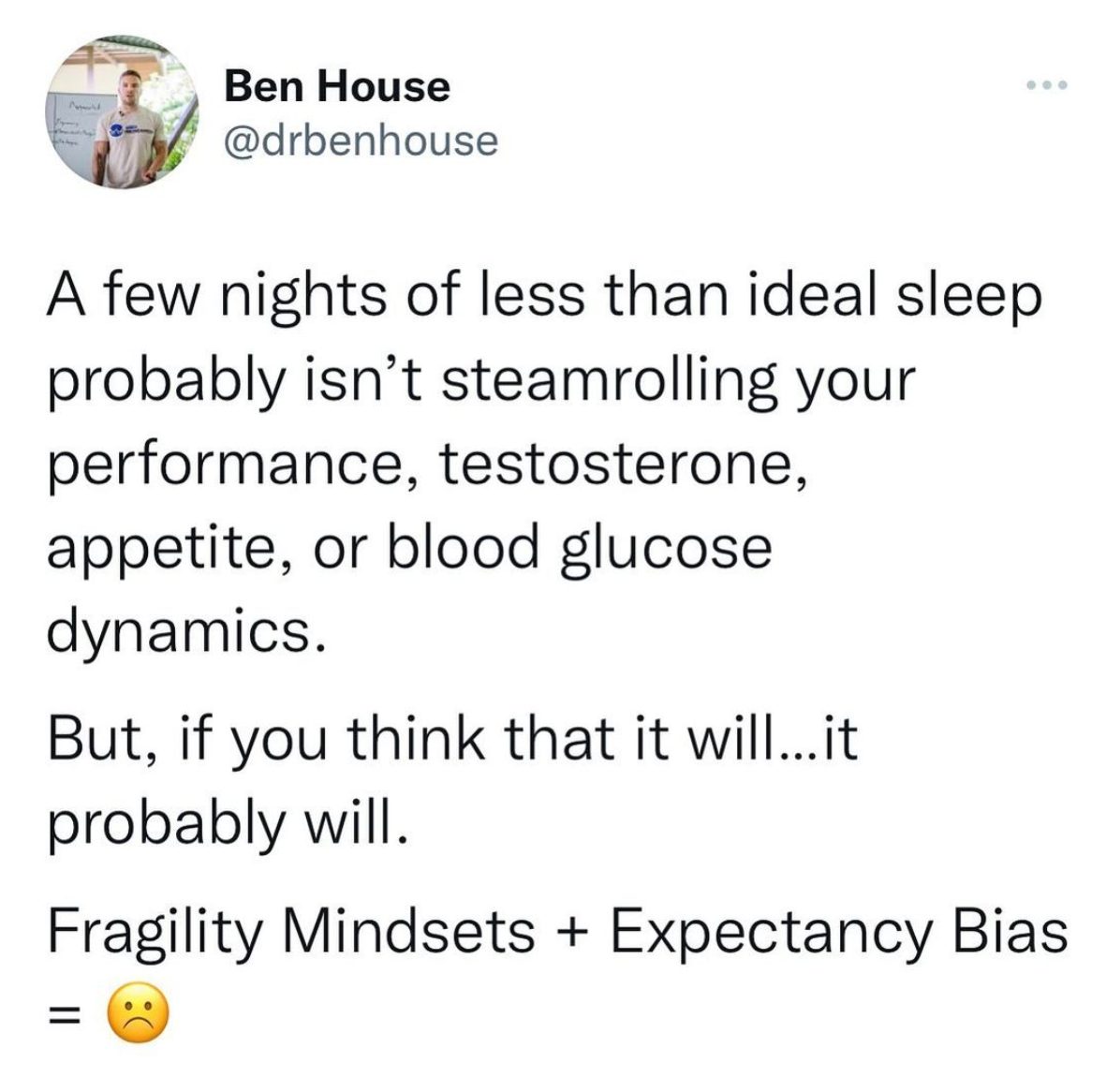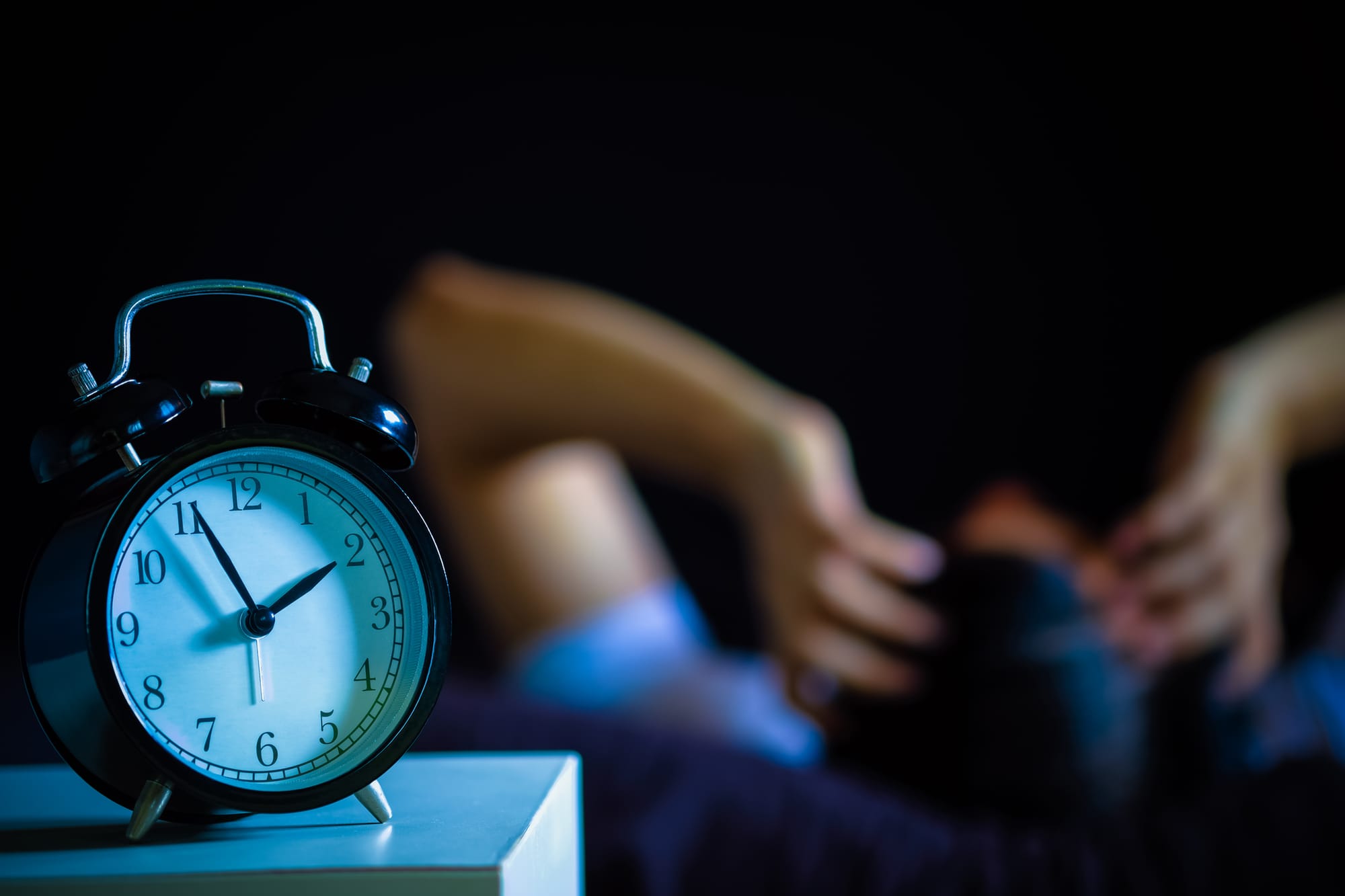How much truth is in the fatalistic narrative...My Sleep Is Off...I Can’t Train...Just Gimme ALL the Doughnuts?
I want to do something a little different in this article by contrasting a shorter form lightly referenced Instagram post with the longer form article from which it was derived.

And then you may get caught in the spiral of not being able to sleep because you are worried about the deleterious effects of not sleeping.
Chronic sleep deprivation and/or shift work is a different and more nuanced story, but many people in the wellness world are wrongfully conflating the two. Five nights of four hours in bed only increased mean glucose by 11.4%, but there was no significant difference in testosterone, self-reported hunger, or total energy intake consumed at a buffet. PMID 22844441
The overall body of literature on acute sleep restriction and appetite markers and energy balance is somewhat mixed and does lean in favor of increased kcals. AKA I could have easily picked a different study and flipped this to a fear-based narrative.
It looks like the times where we may be more susceptible to overeating after poor sleep seems to be in the evening with hyper-palatable food items (*when isn’t that an "issue"?!*). But, knowing that and being pragmatic is probably more than half the battle.
Sleep curtailment does look to consistently nominally increase glycemic variability and insulin resistance, but a few days of a 5-10% difference in blood glucose dynamics isn’t the end of the world and you can likely significantly or completely blunt this by staying on your movement and training routine.
If you have a night of poor sleep, instead of thinking the sky is falling and everything is pointless…what can you do to get back on track?
Yes, getting sufficient sleep is probably most always better for adapting and getting and maintaining long-term results, but life happens and our ability to not get fatalistic and catastrophize may be just as important.
END OF INSTAGRAM CAPTION
I toe the line on this post fairly well and cover myself with the nuance in the caption, especially the last line.
I am not debating the long-term downsides of chronic sleep restriction, shift work, or all-out sleep deprivation.
I am debating the fatalistic narrative that someone plays in their head when they get 6 hours and 32 minutes of sleep and they think the world has ended.
Already have an account ? Sign in






Related Content
How Does Excess Energy Availability + Passing One's Personal Fat Threshold Influence Blood Biomarkers?
Oct 11, 2025
What Biomarkers Are Affected By Low Energy Availability?
Jul 31, 2025
Is Hemoglobin A1c Useful In Athletes and How Is It Affected By Chronic Exercise?
May 28, 2025